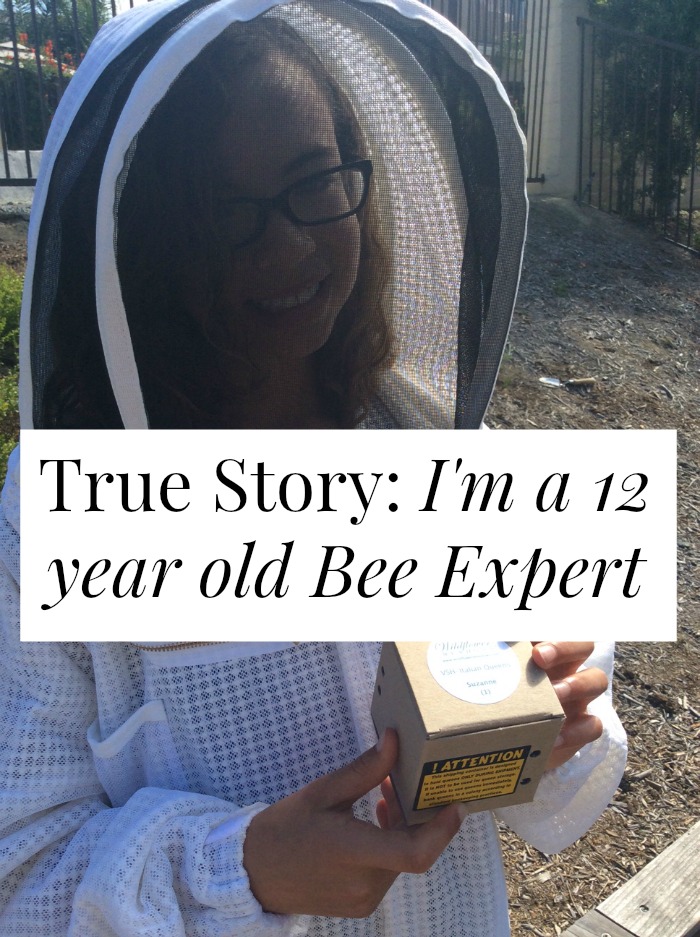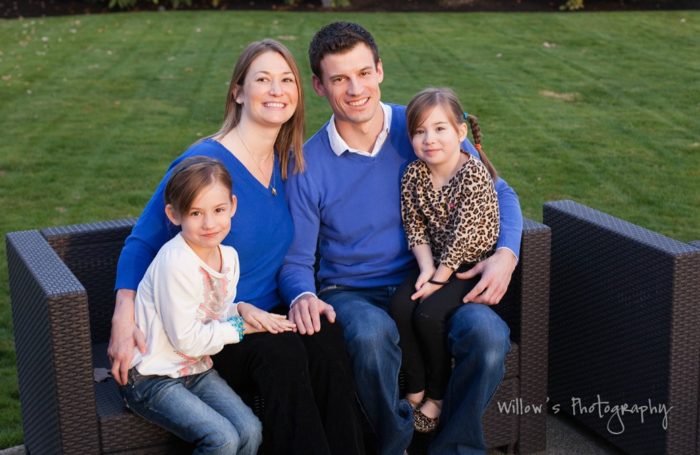
I first encountered Natasha when she signed up for my free site review. I clicked around her site, fully believing I was reading a blog written by a college student for a botany or entomology class.
Nope! NATASHA IS TWELVE EVER LOVING YEARS OLD.
So I obviously had to interview her! If you’re concerned about ‘kids these days,’ it’s time to put those fears aside.
Tell us a bit about yourself!
Hello! My name is Natasha, I am a twelve year old and in seventh grade. I love to read, create modern calligraphy, plant seeds anywhere and everywhere, and make lots of useful crafts! My last craft was making lip balm. I am currently teaching myself French and studying Spanish at school.
I’m a normal California kid – but then again, I’m not. I learned early in life to harness my passion to change what I see wrong within our world, and I’m willing to do the work to make the change. This is what makes me different from other kids my age. Lastly, my favorite animal is the amazing, incredible, remarkable little bee.
For those of us who don’t know, what’s currently going on with bees?
The bees are in great danger right now due to the increased usage of pesticides, particularly neonicotinoids, neonics for short, from consumers and big businesses alike. Neonics are bee-killing pesticides which are super harmful to the bees and us, especially to them because they don’t have gas masks (most of the time we don’t either), and they get really close to the plants as they pollinate the flowers.
The population has had a 44% decline of pollinators from 2015, and with 1/3 of our food needing pollinators, and with bees bee-ing the most effective, this is a serious matter. We wouldn’t be living comfortably without the bees, prices would skyrocket, and Earth would not be as bountiful as a place to live without the bees. We need you little bees!
What’s causing this?
The danger of neonicotoids to the bees is really creating a ‘no safe haven’ for the bees. Bees are our friends, and while you might not like how they occasionally sting, most like fresh fruit, veggies and a cup of coffee! Bees are so important to our ecosystem, and when people choose pesticides, they choose anti-bees, anti-life.
Not only are pesticides toxic to bees, but they are toxic to us, dogs, cats, everything living thing! Pesticides are a main part of the mass deaths of bees. Ten years ago you didn’t see dead bees on the street. Now, littering the streets and sidewalks we see dead bees, from the chemicals.
How did you get interested in bees?
I’ve always been interested in bees. In third grade, I loved these little pollinators, but it wasn’t until fourth grade that I was signed up for a 4H beekeeping class and I LOVED it. Just the feeling of bees, surrounding me, extracting golden honey, tasting this sweet liquid that streams from the frames was a magical experience I craved.
At school, I was ‘famous’ for being the “bee doctor,” I wasn’t afraid of bees and would pick them up with my bare hands to save them from being crushed by a basketball, or stepped on by a bee enemy: a sneaker. Now, as I think back, it probably wasn’t the best idea, but the ironic thing was I’ve never been stung when saving a bee. I have been stung five times, but not in the past couple of years.
People have always been astonished about how my favorite animal could be a bee! Really, they are just tiny creatures with no self-defense, except a tiny little stinger that they never use unless you are threaten them. I think it’s important to inform people, and answer them with, “Bees aren’t out there to hurt us. Without them, we wouldn’t be here. And that I find pretty amazing.”
Tell us about your experience having a hive of your own!
Having a hive was AWESOME! Everything I had seen at for 4H was right there in my backyard! It was easily accessible, and anytime I wanted I could sit by the hive and watch the bees fly in an out and hear the buzz of their wings in the air.
Unfortunately, being the inexperienced beekeeper, my mom and I forgot to put the queen excluder in, so the new queen bee swarmed to find another home, but I really enjoyed realizing that I saved them from their doom of neonics in a valve box. I helped them out! Overall, the experience was amazing. I look forward to catching another hive or swarm this spring.
What are some things the average citizen can do to help the bees?
I really like it when people ask me this question because small actions leads to big change. I think the most important action is to stop using bee killing pesticides on your plants. Also, stay away from Lowe’s and Home Depot’s bee-friendly plants that have bee-killing pesticides pre-sprayed on them until they stop their harmful act.
Lastly, plant clean plants for the bees to pollinate. For more, join my email list, I add an action that you can do to save the bees, along with information about bees to simply learn more about them. You can subscribe here.
What have you learned from your research and experience that ANY of us could apply to our daily lives?
Every purchase we make is a choice to care for our earth, ourselves, and the bees. I encourage people to seek out organic food and plant organic seeds to provide a safe haven for bees and other pollinators. ALL of us can make a huge difference with small changes. It doesn’t matter if you’re making a small change with your money spending or give to a charity. We all are given one beautiful life and it is up to us to choose how to live it.
I believe it is important to choose well and take action to enhance our world. I like to say, “If you see an issue, research it. If you find a dire need in your community, solve it. When you see a difference that needs to be made, bee it.”
Thank you so much for sharing your insights and enthusiasm, Natasha! Do you guys have any questions for her?












I love her enthusiasm, she’s setting herself up with a great future. What a fun interest!
Charmaine Ng | Architecture & Lifestyle Blog
http://charmainenyw.com
Thank you Charmaine!
Natasha
Beegether.org
I wish I was this smart when I was 12! Love this part: “When you see a difference that needs to be made, bee it.” 🙂
Thank you!
Natasha
Beegether.org
Wow, what a vibrant and poised 12 year old! I’m so glad to see this passion for the environment in our next generation. Thanks for this interview, Sarah and Natasha!
Thank you for your inspiring words! (And thank you Sarah for letting me have this opportunity!)
Natasha
Beegether.org
Wow! Thanks for a really interesting interview Natasha!
You’re welcome!
Natasha
Beegether.org
Whoa, Natasha, you’re amazing! Thanks for the bee education!
Exactly what I intend to do. Thank you for the encouragement!
Natasha, you are amazing, the world could use more people like you! I also really like how you say people can make small changes that have a big impact, I completely agree 🙂 keep bee-ing awesome 😉
Thank you so much, it really is true!
Natasha
Beegether.org
What an interesting interview! Thanks for sharing, Natasha! We had a huge hive in a tree near my work last year and I was fascinated watching the talented bee keeping family I called to help out move it. I joined your mailing list! Really appreciate the info on purchasing plants from Home Depot & Lowes. Was planning on yard work this weekend and I will now know how to make a more informed and helpful choice.
I also love what you said about small changes and big impact – so true! The world does need more awesome people like you!
Thank you so much! I’m so glad I helped you make an informed decision and I look forward to sending you more on my email list. I love your beekeeping story!
Natasha
Beegether.org
Hello! I have a Q. Are neonics new? The bee issue seems to be pretty recent (unless I only heard about it a couple of years ago) but pesticides have been used for as long as I can remember. I’m completely befuddled that the food community isn’t making a bigger fuss over this. No bees means famine, and I swear I’m not being over-dramatic!
Hi Deb!
The bee issue began about 15-20 years ago, when neonics began to be used. Neonics are intended to kill pests, and the purpose of genetically engineered plants, along with other things, is to be able to spread these harmful pesticides onto the plant without it dying. However, the same isn’t going with the bees, therefore the decline is occurring rapidly and the only way to stop it is to cut the usage of neonics and to rapidly increase the awareness. (I am starting a nonprofit currently to plant bee-friendly plants and raise awareness.)
Naturally, large companies like Monsanto and Bayer who are producing these neonics don’t want the word to get out, which is why you hear so much propaganda about how it is okay for the bees, and it’s just fine for the soil. (Sidenote: It gets in the waterways and affects us too!) For the corporations awareness = less product sold, so they try to not have as many people be aware.
I’m so glad you realize no bees means famine! So true!
Thanks for your questions!
Natasha
Beegether.org
What an awesome young lady! I’m impressed and inspired!
Thank you, Lulu!
Natasha you rock! Sarah, thanks for sharing this story!
Thank you Ella!
Natasha
Beegether.org
Neat story! This is so interesting.
Thank you! So glad people are supportive of my mission.
Hi,
Woah, this is something you don’t really come across so often. A great read, this one. Best of luck to Natasha, she’s probably gonna be an entomologist when she grows up.
Maybe! Thank you, PenmyPaper!